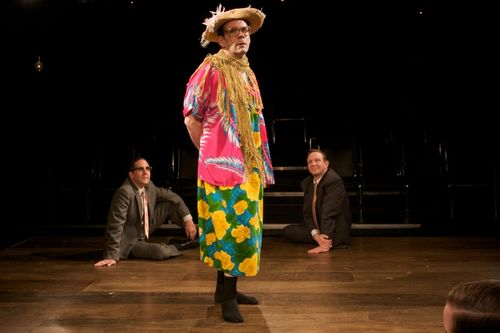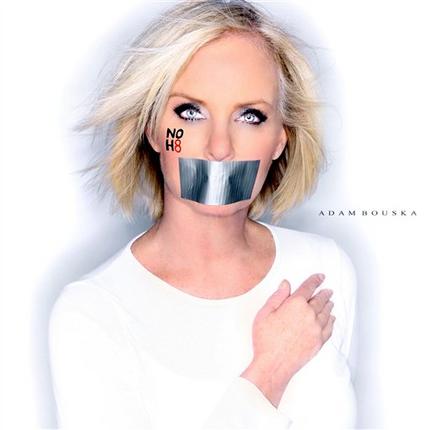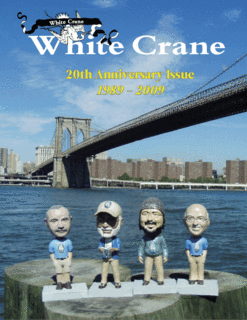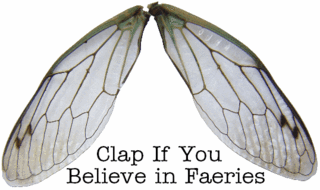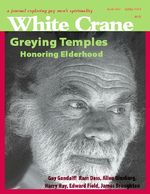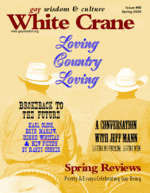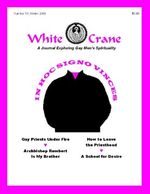 Leaving the Priesthood
Leaving the Priesthood
Practical Advice for Roman Catholic Priests and Religious Men
Selections from the sadly departed www.Leavingthepriesthood.com website
By Bob Barzan
For
our 20th Anniversary we've decided to to share from the treasures of our past, by choosing a number of pieces from our 80
issues. This piece is a web exclusive and was
originally published in issue #55 of White Crane (Winter 2002)
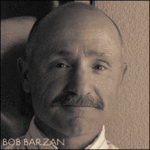 Introduction
Introduction
Though many men have found rewarding lives in the priesthood, many, for a variety of reasons, have not or no longer do so. As a result, the path out of the priesthood is well worn. In the last thirty-five years, thousands of men have left the Roman Catholic priesthood, nearly 20,000 of them just in United States. Many thousands more have left religious life. Most have successfully made their way in the world with new careers, relationships, and living situations. The path is not necessarily easy. A major life change like this one can create a temporary feeling of panic and disorientation. Worries about future job opportunities, housing, health care, relationships, emotional support, or even opportunities for ministry can make for a fearful situation.
The creator of this website was Robert Barzan, a former Jesuit priest and later the founder of White Crane Newsletter, the antecedent publication to White Crane.
Joseph Kramer was in the Society of Jesus for more than ten years. He left when he was twenty-eight years old and is now the director of EroSpirit Research Institute and a researcher in the area of erotic spirituality.
“During my years as a Jesuit, the meaning and direction of my life was clear. My commitment was to be a man for others living in a community of men with similar commitments. My desire was to do God's will by following in the footsteps of Jesus. But after ten years, I finally acknowledged that my special way of loving and serving others involved not celibacy but the gift of my sexuality.
“As I stepped off the treadmill of religious life, I asked myself, "How much of what I value must I change?" Just because I was not called to be celibate, do I have to give up living in a community of men committed to justice-doing and love-making? Did the fact that I left the Jesuits mean that I no longer wished to do God's will or be in relationship to Jesus?
“It was important for me to acknowledge every aspect of religious life that was nourishing and meaningful for me. I didn't want to give anything up-except celibacy. So, as a gay man, I started looking for new forms of monasticism that celebrate physically the dear love of comrades. I have been amazed at where that journey has taken me. One lesson I have learned is "Just because you leave the priesthood or religious life does not mean that you have to relinquish one iota of your spirituality."
Terrence Halloran was a priest of the diocese of Los Angeles for seven years before he left at age thirty-three. He is now a computer programmer and lives with his wife and children.
Most men who leave the priesthood or religious life enter the middle class and stay there. You will soon discover you can't afford the comfortable life style of the clergy and religious, unless you are single or both you and your spouse have careers outside the home. You will never get rich working for a large corporation, but the pay and benefits can add up to what you enjoyed in the priesthood or religious life. Don't feel you have to be a teacher or counselor or community organizer. You will soon notice that your seminary or religious community has educated you well for life in the real world. Try real estate, computer technology, or retail management, for example.
You do not have to change or abandon your faith when you leave the priesthood or religious life. The church may refuse to bless your sexual orientation, or your marriage, or your method of birth control, but most Catholic parishes are remarkably hospitable. Priests will baptize your children, ask forgiveness for your sins, and give you the word of God and the bread of life. Try praying at home and attending Mass as often as most other Catholics you know. Avoid parishes that put too much energy into classrooms, golf tournaments, and fashion shows. Jesus taught adults and played with children, the modern church does just the opposite.
Kevin McLaughlin left his diocese in 1995. He had been a priest for nearly seven years.
I was very blessed and fortunate to meet other men who had left the ministry before me. I believe these men were put in my path by God to offer me the guidance I needed. Each was able help me focus various aspects of the transition. One, for example, gave me a great deal of assistance with the process of networking. Another offered me great support by challenging me to expand my search for a new career. And still another was a great sounding board on my budding relationship with the woman who eventually became my wife.
What I found very affirming and, I must admit, somewhat surprising (though now I don't know why) was the strong sense of community among those of us who have passed through clerical ordained ministry in the Church. It is sad to say, but I never really found that same sense of community and fraternity (that the Church seems to want the world to believe exists) within the clergy. I count many of these men I met in the transition to be genuine friends of my soul…even though I have not seen some of them in a few years.
Jody Blanchard left his religious order at age forty, after twenty-one years. He now lives in New Orleans and is a pastoral care worker in a hospice situation.
I believe that all of life's transitions require courage, good self-esteem, and a goal for the future. Hopefully your courage will come from within and from support of friends and family. In dealing with friends and family, always be honest and try not to make too many excuses or give long explanations. I wrote a letter to family members first, then I spoke to them. It helped.
In the transition start off slowly-don't buy too many things or expect to have it all in one year. Most of all remember that you are vulnerable in many ways, so don't seek out other needy, vulnerable people to "satisfy your needs." Seek to develop healthy relationships and give yourself time to grow, adjust, and love.
After a short time in a Benedictine monastery, Michael Vickery returned to life as a secretary in San Francisco at age forty-two in 1993.
After taking three months off just to sleep in, relax, detox, and watch Charlie Chaplin movies, I bought a couple of suits on sale, got a friend to update my resume, interviewed through an employment agency, and landed a good job, where I've been ever since.
John Anderson was a Jesuit for thirty years, twenty as a priest. He left when he was in his mid-fifties in the early 1990s.
I was successful as a teacher, pastoral minister, and Jesuit superior. I left the priesthood and the order when I was approaching my mid-fifties. I did so with few regrets and in my deepest consciousness I realize I did the right thing.
First piece of advice: Don't expect any real support from church/religious life officials both in the process of leaving and its immediate aftermath. Secondly, the ultimate feeling of freedom is exhilarating; the trade off is that in the past we had most of our necessities of life taken care of, all of a sudden we must rely on ourselves for mere survival. You should not discount your talents and innate generosity that underpinned your religious vocation in seeking employment. Also, I have found that as jaded as we liked to consider ourselves in religious life in terms of creature comforts, we are accustomed to living somewhat modestly in contrast to the peers we encounter in professional life.
I discovered very quickly how proficient I truly was once I was out of the Society, out of church employment, and I started to work for a living. The positive feedback was at first overwhelming. Unless it is absolutely necessary, I recommend avoiding Catholic Church related jobs. Church officials will never accept you, especially these days when your presence can be interpreted as an underlying threat by some.
Relationships will come along. I nearly despaired of ever finding someone to share my ideals and my life with, but soon enough that person came along. In that relationship I found all the theology of human love manifesting God's love a reality. I never felt holier than when we were expressing our love for each other. In my case, my lover died after we had been together for a couple of years. However, I wouldn't trade the joy and happiness I experienced at that time for anything.
Leaving is part of a journey. Since leaving I have found myself to be more compassionate, understanding, forgiving, and loving. In the journey you will encounter more friends and ultimately form your own community of support. In religious life I always found a certain expected politeness even in casual relationships which often covered over any real feelings. Getting used to being treated with honesty and treating others accordingly I find fascinating.
Marcus Fleischhacker left the Crosier Fathers and Brothers in 1994, at age forty-nine, after twenty years as a priest and thirty years in religious life, including ten in formation work. He is now a resource coordinator for the AIDS Survival Project.
I had begun a sabbatical in January, and at the end of the year I was to receive a new assignment. My conscious intention was to remain in the community and priesthood. Looking back, unconsciously I had already decided to leave, and I suspect, some of my friends and superiors knew it as well. In any case, the sabbatical proved to be a good preparation. I moved from the center of my community and biological family in Minnesota to Atlanta where I knew only three people. As it turned out, I was slowly, not radically, moving to independence.
It was the first time in my life that I lived alone. I could experiment yet maintain ties with family and community. The most helpful book I read was Living Alone and Liking It, by Lynn Shahan, a practical and emotional guide on how to live alone.
In a matter of days after becoming aware of my decision to leave, I told my superiors, the local religious community I was assigned to, my siblings and their spouses, and my close friends. Then I wrote a letter to everyone else, sending out 125 in one day. I wanted everyone to hear from me that I was leaving and why. I did not want rumors to fly, gossip and suspicion to take hold. I wanted them to know I left because I could no longer be a closeted gay priest in a church that did not want me. The point is not so much why I left, as that I told everyone at the same time my story in my words. No rumors, no gossip. I received almost 100 letters and calls of support and understanding. It felt — it feels — great! The truth shall set you free!
On a spiritual and psychological level, I found peace by realizing that my decision to leave was not a radical change of direction in my life, rather, it was another step on a continuum I had been on for a long time: a continuum of searching for freedom, asking the difficult and scary questions, claiming my own consciousness and truth, celebrating my goodness, and not my sinfulness and unworthiness. Innumerable people tell me I exhibited unbelievable courage in leaving, but I sense I was (am) just being true to myself. All my life, spiritual directors and preachers talked about seeking the truth. I took them at their word and here I am.
So my decision to leave was not a sharp turn to the right or the left, it was just the next step in the process of living my life. Seeing it that way makes it less ominous and dramatic. I am still on the same road, going in the same direction.
Seeing it that way has also helped me deal with the way people's perception and response to me has changed. I no longer get to go to the head of the line at funeral buffets. I no longer get twenty-dollar bills slipped into my hands when I visit aunts. I find it easier to leave behind those ritual responses to a ritual person when I realize I am on a personal journey and always have been. It may look different and prompt different reaction, but it's the same journey and perhaps even a more authentic one now. I have not so much "lost my identity," as found it.
Friendships
Your relationships with friends will be a solid source of support during your transition to secular life. Rely on your trusted and wise friends. They will help you keep a sense of reality about what you are doing, provide worthy advice, material support, and emotional comfort. Most people are very willing to help a friend in need, especially when it involves such a major life change as leaving the priesthood.
Romantic Relationships
It is a good idea to save romantic relationships for after you have firmly decided to leave the priesthood. Beginning a romance before you have made your decision can immensely complicate your discernment. Ideally, I recommend that you save romantic relationships for after you have made a successful change to secular life. Looking for an apartment, a new job, moving, and dating are usually more than most men can handle. Once you are on your feet, you will be ready for the joys and stresses of dating and romance if you should choose to seek them.
If you have never dated before, or have a limited amount of experience, I recommend that you go slowly. You might profit from joining a support group where you can learn the ins and outs of romantic relationships with, and from, other men.
Salvatore Giambanco left the Jesuits after nine years at age thirty-two. He now works as a technical recruiter in California's Silicon Valley.
In the area of relationships, if you were a "good" religious and never fell in love, proceed with caution. If you were a religious who dabbled in relationships, proceed with caution. Just proceed with caution and remember there is no such thing as the perfect relationship.
For me, falling in love has been the best part of leaving religious life. There is absolutely no substitute for waking up in the morning next to someone you really care about and who cares about you. Rule of thumb, date, fool around, have sex, get horny, masturbate, etc. as much as you like once you get out. However, no serious commitments for at least 8 months to a year on the conservative side. More than one year is good.
Even though many of us often gave relationship advice as religious, theory and reality are very different. Always take it slowly, and use the "love" word very cautiously. Don't go from one prison to another and then have to go through this whole process all over again.
Good luck, It's not easy, but many thousands of men have made the transition over the past thirty years. You can do it too.
For more White Crane, become a fan on Facebook and join us on Yahoogroups.
Subscribe today and keep the conversation going! Consider giving a gift subscription to
your friends who could use some wisdom! If there's an article listed
above that was not excerpted online, copies of this issue are available
for purchase. Contact us at editors@gaywisdom.org
